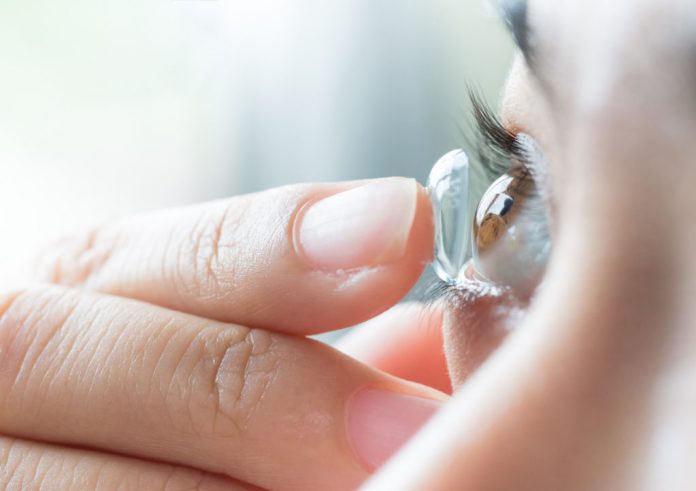Your eyes are irreplaceable. They are your windows to the world. But they are fragile and you need to take meticulous care of them. There are many reasons your eyesight could deteriorate- age, pollution, stress, unhealthy diet etc. While you can’t really stop the ageing of your eyes, you can slow it down. But many of the other issues could be avoided if you adopt a few measures.
Tips To Keep Your Eyes Healthy –
1. Regular Check-up for your Eyes
You need to visit an ophthalmologist/optometrist at least once a year. They will administer several tests to determine how strong your vision is or how healthy your eyes are. Based on the tests, you will be given a new pair of lenses for your glasses or medicines if needed.
Myopia has been becoming an epidemic, especially in kids. Scheduling regular eye check-up exams are the best way to ensure safety from myopia. Regular checkups can also ward off cataracts, retinal detachment and glaucoma, all very sight-threatening eye conditions.
2.A Healthy Diet to the Rescue
This is an age-old and sure-shot means of keeping your eyes healthy. There are certain foods that boost your eyesight and reverse the effects of ageing. Make sure your diet includes –
Oily fishes that contain omega 3 fatty acids such as tuna, salmon, trout, sardines, mackerel, anchovies, herring etc.
All kinds of seeds and nuts – walnuts, brazil nuts, peanuts, cashews, chia seeds, hemp seeds, flax seeds.
Orange-coloured foods like carrots, squash, cantaloupe, red peppers and yellow bell pepper.
Eggs, soybeans, milk products and similar vegetarian protein sources.
All the leafy green vegetables that you can get your hands on like spinach, kale and collards.
A healthy diet also reduces your chances of becoming obese or contracting diabetes or hypertension, which are leading causes of eye problems.
Age-Related Eye Disease Study (AREDS) found that certain nutrients like copper, zinc, Vitamin E, Vitamin C and beta carotene can reduce the risk of age-related decline in eye health.
3. Diabetes and Eye Health
Obesity and diabetes are closely tied to potential eye problems. Obesity is linked with type II diabetes and diabetes is linked to a higher risk of glaucoma and retinopathy. Exercising, diet control and maintaining healthy blood pressure and cholesterol can help with weight loss and diabetes management. This can help you to avoid the risks of eye conditions and also save you the trouble of expensive glaucoma treatment surgery.
4. Give up Smoking
Smoking is not only destructive to your lungs but it can also give you cataracts. It may damage your optic nerve and cause macular degeneration. If you are a chain smoker and quitting seems impossible to you, talk to a therapist.
Smoking also increases the risk of age-related macular degeneration, glaucoma, dry eye syndrome.
Smoking also leads to Uveitis which is inflammation of the eye’s middle layer. Studies have shown that smokers are 2.2 times more at risk of deterioration of the eye than non-smokers.
5. Wear Sunglasses
Shades are imperative when you go out into the sun. The UV rays of the sun can harm your eyes. They can bring about macular degeneration, cataracts and can even cause temporary blindness. Shades can protect you from the worst of UV rays.
If your work requires you to stare at a computer screen for 8 hours at a stretch, you will need to adopt a few extra precautions.
6. Your Eyes Need a Break
Once every 30 minutes, look away from the screen and keep your eyes closed for 15 seconds. Then open them and blink rapidly, this will coat your eyes with a layer of moisture.
Constantly working in front of a screen and not peeling your eyes for a long time may result in Computer vision syndrome. It causes eye strain, blurry vision, and discomfort.
7. Eye exercise
At regular intervals, put your eyes through a simple exercise. Stare at a distant object for 15 seconds, switch your gaze over to a nearer object, and keep staring at it for another 15 seconds. Repeat this cycle 4-5 times.
Make it a habit to do this consistently to guard your eyes against unnecessary strain and discomfort.
8. Protective gear
Computer screens emit a harmful rays called blue light. To mitigate the effect of blue light, you can attach an anti-glare cover to the screen of your computer or wear a pair of anti-glare glasses.
Use safety glasses or eye shields when outside. Wear goggles when and where necessary. Along with eyewear, eyewashes are also important to keep your eye safe.
9. Adjust the Lighting
Make sure that the lights in your office room are not too harsh. Turn a few off, if possible. Don’t sit with your back to an open window because your computer screen will reflect the light coming in through the window. You can also adjust the brightness of your computer so that it complements the lighting of the room.
Don’t take your eyes for granted. They are priceless. Get a good night’s sleep as it is monumental in promoting good eye health. The rest is very important for your eyes. Keep your hands clean if you have a habit of touching your eyes often. With a few simple tips, you can keep them healthy.
Important to note – Eye health is also connected to age, the older you get the more you should be aware of eye disorders that are common with ageing. Your doctor may advise you to get frequent checkups and also inform you what symptoms to watch for (such as poor vision and blurry sight). Another important factor to keep in mind regardless of age is for people who use contact lenses and prescription glasses. Be sure to use clean hands whenever you are putting your contacts on and maintain proper hygiene whenever you’re dealing with your eyes.




























